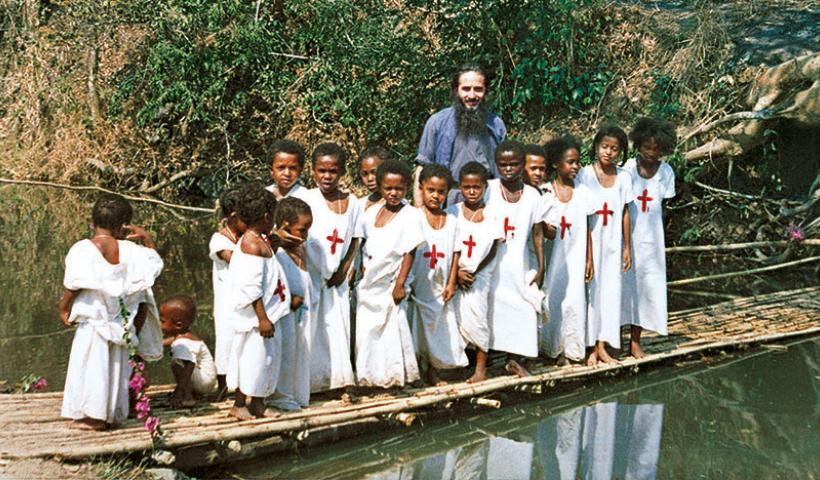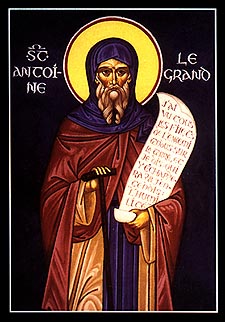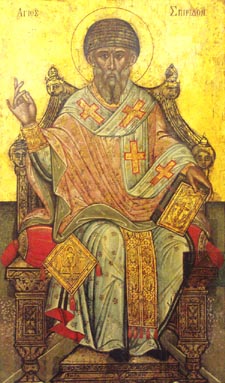Go ye therefore, and teach all nations, baptizing them in the name of the Father, and of the Son, and of the Holy Ghost: Teaching them to observe all things whatsoever I have commanded you: and, lo, I am with you always, even unto the end of the world. Amen (Mt. 28:19–20). Such was the final commandment our Savior gave to His apostles. Every true Christian is a missionary that testifies that the Kingdom of God has come into the world and spreads the good news about it to other people.
Hieromonk Kosmas Grigoriatis (Ioannis Aslanidis in the world; 1942-1989) is one of the most well-known Orthodox missionaries of our time, through whom the light of Christ has illumined the souls of many of our African brothers and sisters in Christ. This year we commemorate the thirtieth anniversary of his reposal.
We would like to offer our readers a few words of reminiscence in honor of Fr. Kosmas, which were said by the abbot of the Grigoriat monastery of Mt. Athos—geronda George (Kapsanis) of blessed memory.
After sunset on Friday, January 7, 1989, the zealous preacher of the Gospel to our African brothers, hieromonk Kosmas, faded away from this life in order to arise in the ever-shining light of the Kingdom of God. On his way from Lubumbashi to Kolwezi, he suddenly finished his earthly journey, and stepped upon the path leading to eternity, to the everlasting City, to the longed-for Homeland.

 In remembrance of archimandrite Kosmas (Aslanidis), the apostle of the Republic of Zaire
In remembrance of archimandrite Kosmas (Aslanidis), the apostle of the Republic of Zaire Saint Anthony the Great is known as the Father of monasticism, and the long ascetical sermon in The Life of Saint Anthony by Saint Athanasius (Sections 16-34), could be called the first monastic Rule.
Saint Anthony the Great is known as the Father of monasticism, and the long ascetical sermon in The Life of Saint Anthony by Saint Athanasius (Sections 16-34), could be called the first monastic Rule. Saint Spyridon of Tremithus was born towards the end of the third century on the island of Cyprus. He was a shepherd, and had a wife and children. He used all his substance for the needs of his neighbors and the homeless, for which the Lord rewarded him with a gift of wonderworking. He healed those who were incurably sick, and cast out demons.
Saint Spyridon of Tremithus was born towards the end of the third century on the island of Cyprus. He was a shepherd, and had a wife and children. He used all his substance for the needs of his neighbors and the homeless, for which the Lord rewarded him with a gift of wonderworking. He healed those who were incurably sick, and cast out demons. Saints Joachim and Anna who lived in Nazareth in Galilee “in the whole piety of the Mosaic law,” up to their very old age had no children. On one great feast the righteous Joachim, according to the custom of the law, gave gifts and offerings to God in the temple in Jerusalem. The high priest Issachar who accepted the offerings of the numerous throngs of people, did not want to accept the gifts from Joachim, telling him: “It is not right to accept gifts from you as from a true Israelite; for you are childless. Because of some kind of heavy sins you have not received the blessing of God.”
Saints Joachim and Anna who lived in Nazareth in Galilee “in the whole piety of the Mosaic law,” up to their very old age had no children. On one great feast the righteous Joachim, according to the custom of the law, gave gifts and offerings to God in the temple in Jerusalem. The high priest Issachar who accepted the offerings of the numerous throngs of people, did not want to accept the gifts from Joachim, telling him: “It is not right to accept gifts from you as from a true Israelite; for you are childless. Because of some kind of heavy sins you have not received the blessing of God.” This great holy father of the Orthodox Church was of
This great holy father of the Orthodox Church was of 